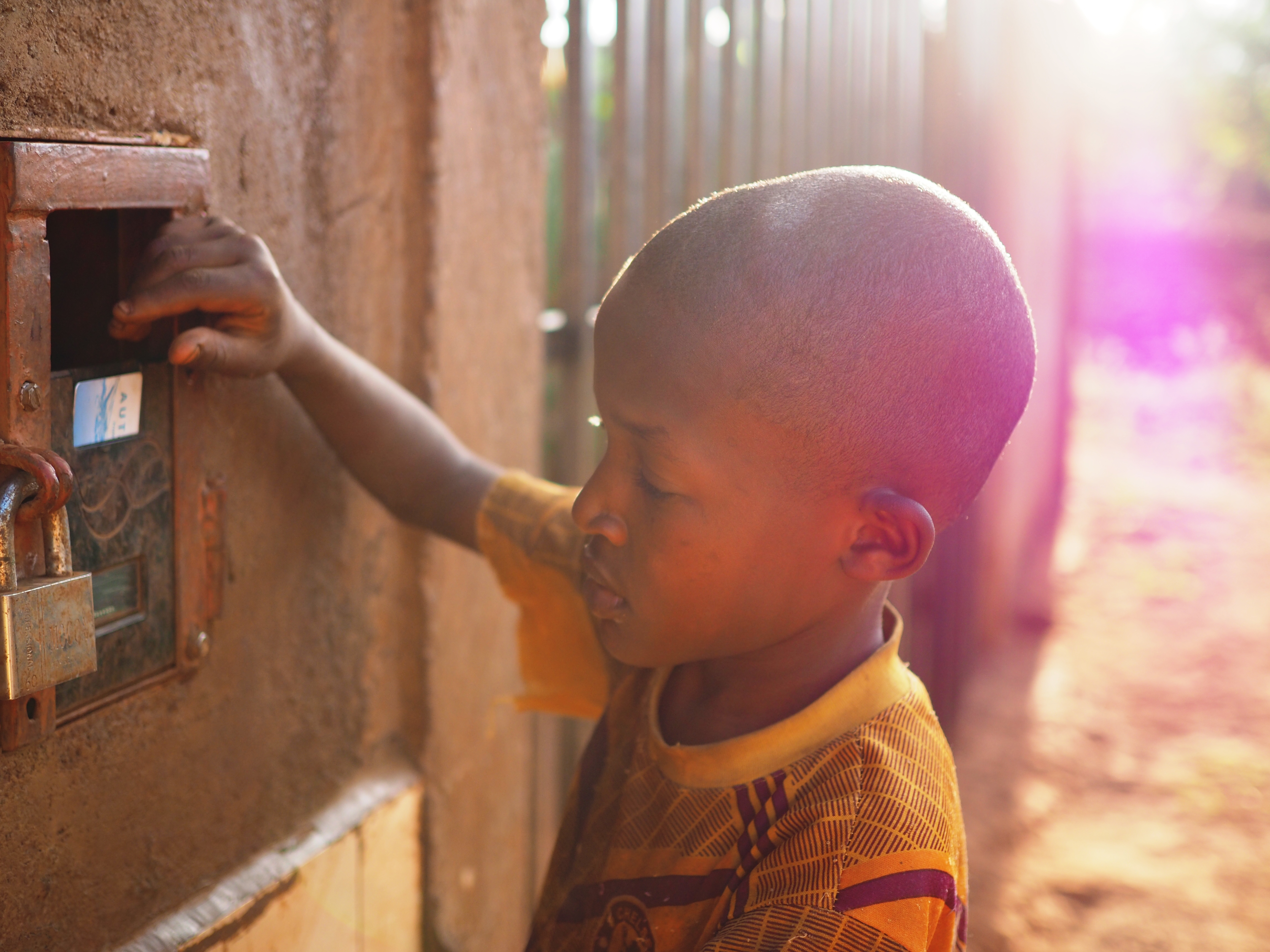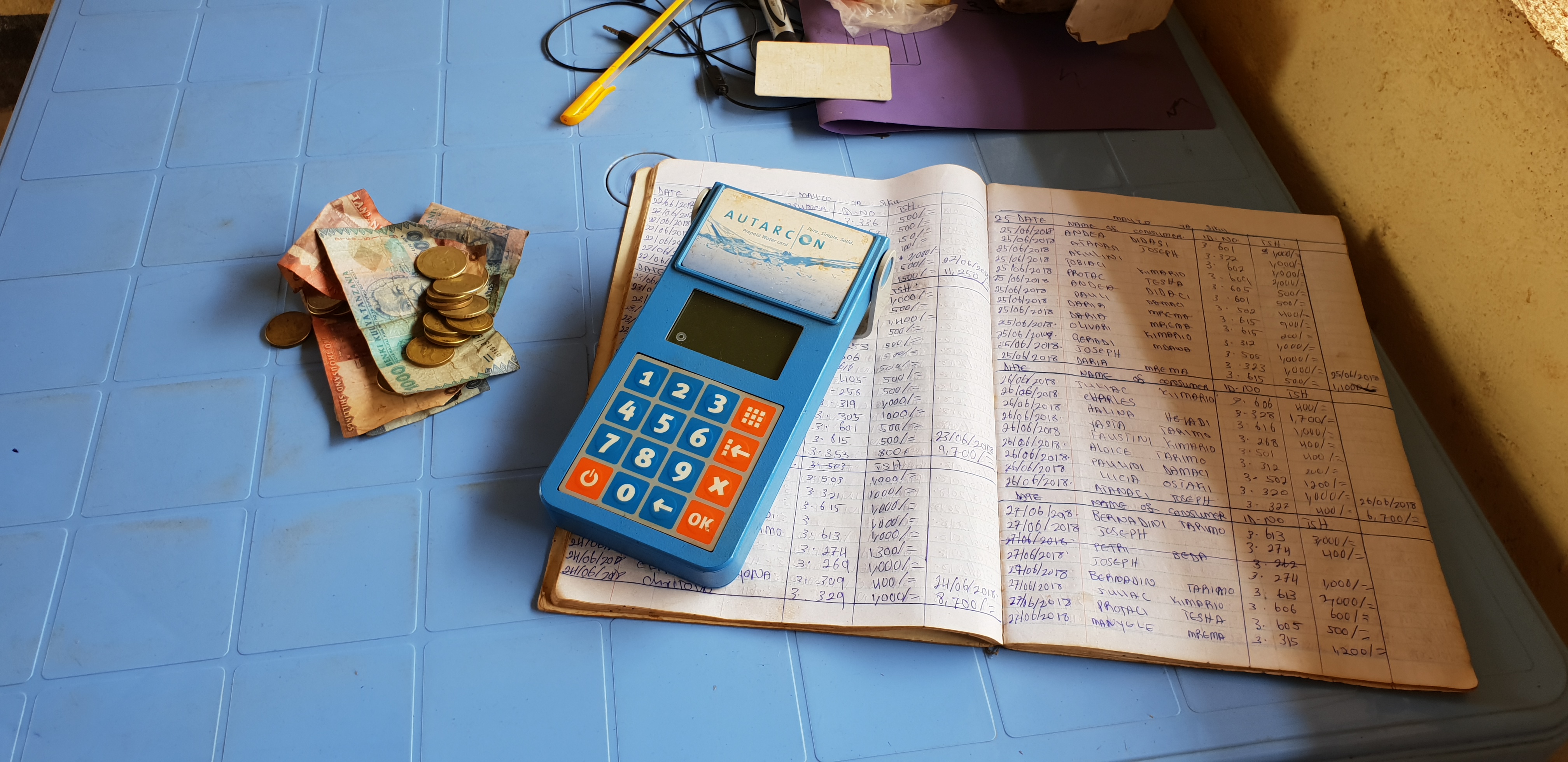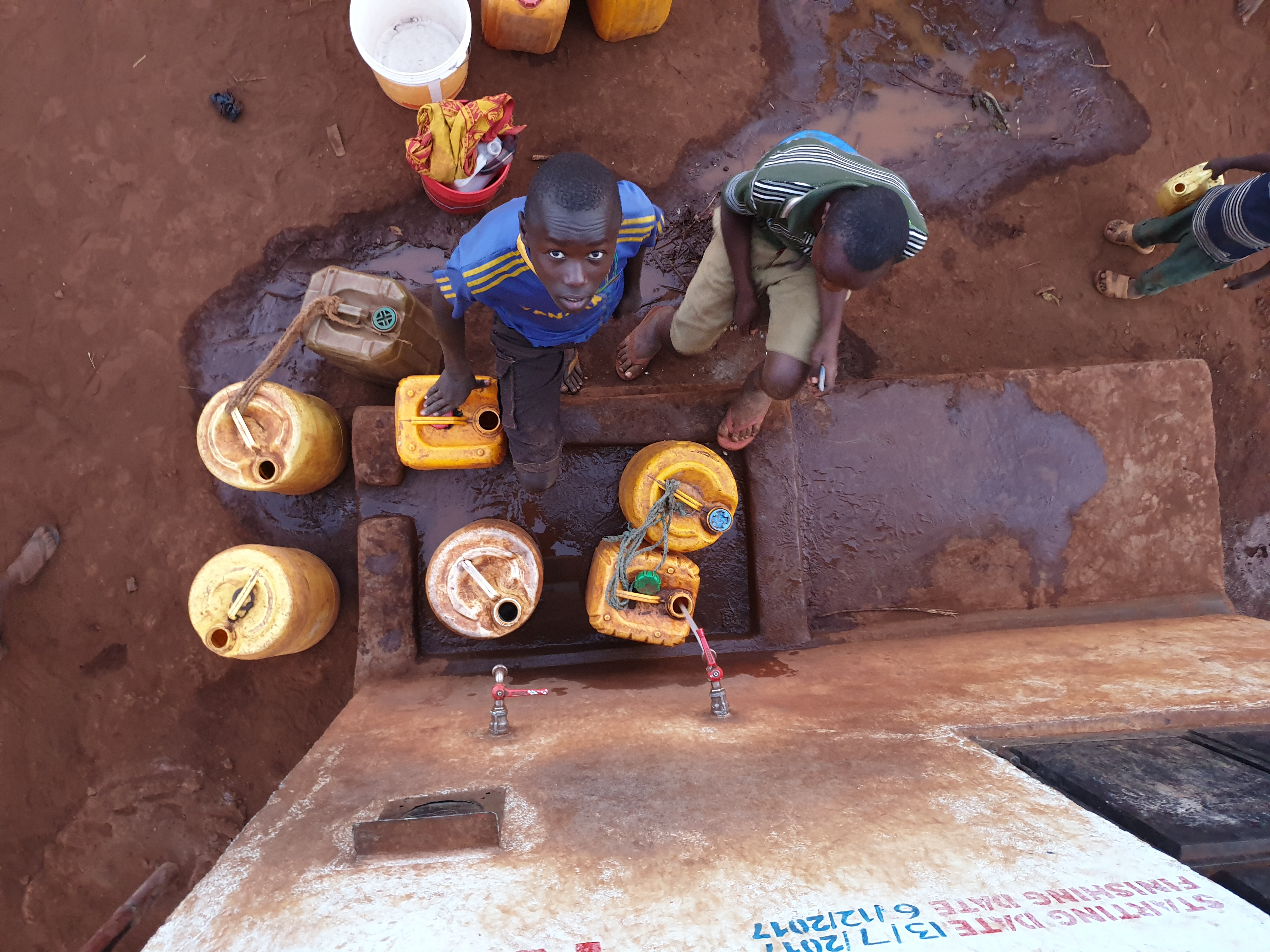Checking in with our epA 2019 winners – a blog series: AUTARCON

In this 11-part blog series, we will be checking in with our empowering people. Award (epA) 2019 winners to see what they’ve been up to since our most recent award ceremony in Cairo last July. Check out what’s new with AUTARCON!
Below is an interview with Philipp Otter, Deputy Managing Director at AUTARCON.
Siemens Stiftung: Firstly, can you explain to your fellow empowering people. Network (epN) members and readers what you do, where you do it, and, most importantly, why?
Philipp: We are a small enterprise dealing with the supply of safe drinking water in remote developing regions. We developed the technological base for starting AUTARCON during our final years in university and started the company directly after getting our degrees in 2010. Our stations treat and disinfect water using solar PV generated electricity only. The required disinfectants are produced from the natural mineral content of the water itself. Because of that, the systems do not require any infrastructure and can be deployed wherever there is water available to supply safe drinking water.
 A boy in Tanzania using AUTARCON’s water ATM.
A boy in Tanzania using AUTARCON’s water ATM.
By now our stations are running in more than 10 countries worldwide and supply 100,000 people in the most remote regions reliably with safe drinking water. In 2016, we have started to not only see the treatment stations support potential customers but also enable them to sell the water to their consumers, through water ATMs.
 New water treatment stations.
New water treatment stations.
Siemens Stiftung: More than half a year ago, you were a winner of the empowering people. Award 2019. What has/have been the major change(s) for your company and team since then? For you as an entrepreneur?
Philipp: We have been using the title “epAward Winner” during presentations and marketing activities. Many potential customers appreciate the award, or have even gotten to know us through the award. Although we are earning a lot of credit through the award, we cannot – yet – tell to which extend the award will be contributing to our future success. It is for sure helpful by opening discussions with potential project investors and gives us a head start.
Siemens Stiftung: After your participation in the award ceremony and the empowering people. Workshop, that focused on story telling for social entrepreneurs and peer coaching, have you made any changes to the way you operate? If so, what changes?
Philipp: The story telling workshop has allowed us to optimize the way of addressing investors for single, small projects. Furthermore, it has enabled us to address technical problems with our operators, for example.
Siemens Stiftung: What has been your biggest success, personally or professionally, since then?
Philipp: We have been collecting data from our stations in Tanzania, Egypt, and Nepal to understand the most important factors for a profitable water supply system operation. The data shows that, with our stations in Nepal and Tanzania, all operational costs can be covered and surplus money generated is used for extending the water supply service.
 Recharging “water credit cards”.
Recharging “water credit cards”.
Meanwhile we have started to successfully sell water with our first pilot station in Nigeria and we are collecting data to optimize the profitability for our future stations.
As we are going to increase our system capacity tenfold, with our new system design (see below), with only marginal additional costs, we will further improve profitability of our future water projects.
 Filling up on water in Tanzania.
Filling up on water in Tanzania.
Siemens Stiftung: What are you working on now? And what are your future plans?
Philipp: Due to the Covid-19 crisis, we had to suspend all our activities abroad. This has given us the time to focus on further improving our technology. Our stations now allow us to react more flexibly on challenging source water conditions in field and – most importantly – has a much higher capacity than before. Final field tests are still due, but first stations for long term tests have already been shipped to Vietnam. The tests will start once we are allowed to travel again. Currently this is planned for September 2020.
Siemens Stiftung: With your membership, in what way(s) do you hope to benefit from epN? And if applicable, how have you already gained from your connection to the ecosystem?
Philipp: As always, epN helps us to stay in contact with people that are in the same situation as us. It has helped us already many times in exchanging information on how to deal with business operation related challenges. We are still hoping to join forces with some members to implement our technologies and are offering epN members to work on our project sites with their projects/products if possible.
Siemens Stiftung: Thank you, Philipp! It sounds like you and your team have used this time (during Covid) wisely by looking at improving your technology. Good luck with your efforts in Egypt, Tanzania, and Nepal!